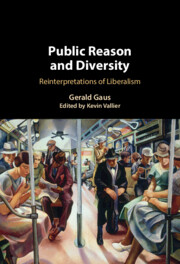Part II - Diverse Public Reason
Published online by Cambridge University Press: 18 October 2022
Summary

- Type
- Chapter
- Information
- Public Reason and DiversityReinterpretations of Liberalism, pp. 177 - 265Publisher: Cambridge University PressPrint publication year: 2022

